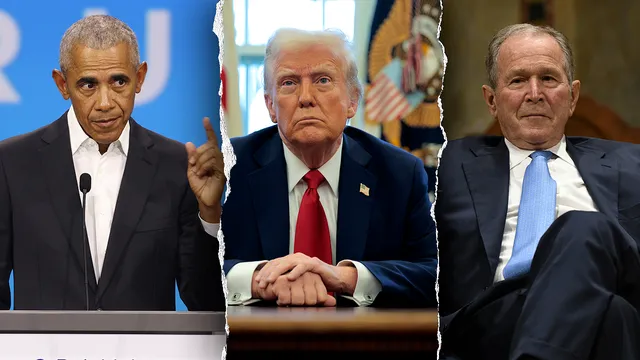
Trump dismantles USAID, prompting backlash from Obama, Bush, and Bono
2025-07-02 18:25- USAID officially ended its operations as an independent agency on July 1, 2025.
- Former Presidents Barack Obama and George W. Bush criticized Trump's decision to dismantle the agency.
- The closure of USAID is projected to negatively affect millions of people reliant on its programs.
Express your sentiment!
Insights
On July 1, 2025, the U.S. Agency for International Development (USAID) officially ceased operations as an independent agency. Established by President John F. Kennedy over six decades ago, USAID was responsible for promoting U.S. national security through humanitarian aid and development programs around the world. The agency's last day was marked by a farewell video featuring former Presidents Barack Obama and George W. Bush, as well as singer Bono, all of whom criticized the Trump administration's decision to absorb USAID into the State Department. Obama called the dismantling of USAID 'a colossal mistake' and lamented the loss of jobs and the essential work done by its employees. Bush highlighted the notable successes of USAID, especially in healthcare initiatives like the President’s Emergency Plan for AIDS Relief (PEPFAR), which has saved millions of lives. Bono recited an emotional poem lamenting the agency’s closure and warning that cuts to funding would affect millions in dire need of aid. The transition to the state department raised concerns about how effectively foreign assistance programs would be managed moving forward. Critics argue that the State Department lacks the structure and resources needed to replicate USAID’s extensive global impact. Supporters of USAID assert that its dissolution will have detrimental effects on millions of recipients dependent on its programs. Many humanitarian advocates view Obama, Bush, and Bono's unified message as a stark warning about the consequences of reducing U.S. engagement in international development. As discussions continue around the newly introduced 'America First' foreign assistance framework, many are left wondering whether the needs of the bottom billion, those living in extreme poverty, will still be met under this new paradigm.
Contexts
The history of the United States Agency for International Development (USAID) is marked by its commitment to providing foreign aid and support to countries in need, promoting economic development and humanitarian assistance worldwide. Established in 1961 under President John F. Kennedy, USAID was created as a response to the growing need for comprehensive foreign assistance programs during the Cold War era. The agency aimed to counteract poverty, hunger, and disease while fostering social and economic progress, thereby reinforcing the United States’ influence globally. The creation of USAID represented a shift in American foreign policy, moving from military intervention to a focus on development and diplomacy. Throughout the 1960s and 1970s, USAID's focus was mainly on post-war reconstruction and development in countries in Asia, Africa, and Latin America. Programs initiated during this period concentrated on sectors such as agriculture, education, and health care, with an emphasis on building infrastructure and promoting political stability. This era also saw the expansion of USAID's footprint as it forged partnerships with other nations and international organizations, securing funding to implement large-scale projects. By the end of the 1970s, USAID had evolved not only as a channel for American aid but also as a key player in international development discourse, shaping the policies and practices of other donor countries. The 1980s and 1990s introduced new challenges and opportunities for USAID, as the global political landscape underwent significant changes, including the end of the Cold War. The agency adapted by shifting its focus toward human rights, democracy promotion, and sustainable development. The introduction of the "New Directions" policy in the early 1990s emphasized a more integrated approach to development, prioritizing participation from local communities and the importance of gender equality. USAID also began to address emerging global issues such as HIV/AIDS and environment sustainability, broadening its mandate and scope of assistance to align with the evolving needs of recipient countries. In the 21st century, particularly after the events of September 11, 2001, USAID’s role expanded further to include counter-terrorism and national security aims. The agency has been pivotal in responding to humanitarian crises, including natural disasters and conflicts, while continuing its development initiatives. Its focus is now increasingly on partnerships with the private sector and leveraging technology to enhance aid delivery and effectiveness. As of today, USAID remains at the forefront of international development efforts, adapting strategies to meet contemporary global challenges while maintaining its mission to improve lives and foster societal resilience across the world.